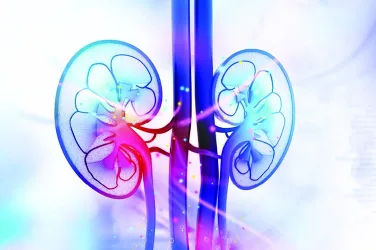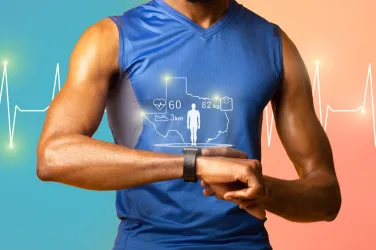Over the holidays, help friends or family deal with eating disorders by being observant and compassionate
 Holidays and happiness go hand-in-hand for many. Celebrations with friends and family highlight the season; lights, festivities, and fancy food add to the joy. For some, however, the holidays are difficult—those without loved ones, those who struggle with addiction, and those with eating disorders, to name a few. Our desire is to assist those in distress, especially those closest to us, but some issues are not as obvious as others. Though you might recognize someone with a drinking problem, would an eating disorder be as obvious? Severe anorexia is clearly noticeable, but is gluttony, bulimia, or other disorders?
Holidays and happiness go hand-in-hand for many. Celebrations with friends and family highlight the season; lights, festivities, and fancy food add to the joy. For some, however, the holidays are difficult—those without loved ones, those who struggle with addiction, and those with eating disorders, to name a few. Our desire is to assist those in distress, especially those closest to us, but some issues are not as obvious as others. Though you might recognize someone with a drinking problem, would an eating disorder be as obvious? Severe anorexia is clearly noticeable, but is gluttony, bulimia, or other disorders?
This season, take a moment to engage those around you in conversation, but take notice of their body language, facial expressions, and non-verbal communication as well. You might be the one to offer the compassion they need, and simple observation may be all you need to recognize an eating disorder among family members or friends. Sara shares her struggle with body image and eating:
“I had grown up with a negative body image. I always felt like it was the thing that was holding me back from love, success, being seen… when I moved to Bali I was suddenly living by myself in a foreign country. I only knew three other people and they all lived far enough across town that I couldn’t access them more than twice a week. So, isolation, feeling out of control, wanting desperately to find love, and not feeling worthy of love based on my weight were the main catalysts. I remember specifically thinking, “I’ll do whatever it takes to lose weight, I don’t care how harmful it is to me.” I felt such desperation to fix myself so that I would be lovable. I used food like a drug (forget everything and only feel pleasure while you binge and then face no consequences because you can get rid of it) and to gain some control over my life which felt out of control and overwhelming. Food was my friend and my enemy. I isolated myself from people many times so that I could spend time with food and control the way I ate, when I ate, and how I ate.”
A few of the signs of an eating disorder are:
- Sudden weight gain or loss
- A tendency to over eat, under eat, or avoid eating all together in social situations
- Isolation
- Anxiety around food
- Recurring illness
- Frequent bathroom trips
- Excessive exercise
- Obesity
While a healthy approach to food is to eat to live, those with disorders “live to eat.” What they eat, how much, how often, calorie counting, binging and purging, extreme fasting, and over-exercising can consume their every thought. As we open our eyes and our hearts to those around us, we can offer a safe place for those in need.
 Sara continued, “I overcame my eating disorder by telling people and exposing the secret. I wanted to be done with it and I wanted to be healed. I started doing counseling, reading books, connecting the dots from my past that had led me to such self-destruction. I found that I could trace a path from moments in my childhood where I had felt rejected and not good enough to moments in my teens where I felt unworthy of love, to the present day where I still felt those emotions. As I began to go through my memories, I wrote down the lie I was believing about myself and then I wrote down the corresponding truth. I went through as many memories as I could remember, I forgave the people that hurt me because I could now, with my adult eyes, see how they were also broken. I had people holding me accountable, people I could turn to if I stumbled back into the eating disorder. I could confess my struggle to them. I was determined to never hide again and to never live a secret life like that again. Living in the open, in the light brought such freedom. Now one of the first things I tell a new friend is that I once struggled with an eating disorder. It’s not something I hide. I freely admit my past struggle so that it will never again become my present struggle. You have to be vulnerable to be free.”
Sara continued, “I overcame my eating disorder by telling people and exposing the secret. I wanted to be done with it and I wanted to be healed. I started doing counseling, reading books, connecting the dots from my past that had led me to such self-destruction. I found that I could trace a path from moments in my childhood where I had felt rejected and not good enough to moments in my teens where I felt unworthy of love, to the present day where I still felt those emotions. As I began to go through my memories, I wrote down the lie I was believing about myself and then I wrote down the corresponding truth. I went through as many memories as I could remember, I forgave the people that hurt me because I could now, with my adult eyes, see how they were also broken. I had people holding me accountable, people I could turn to if I stumbled back into the eating disorder. I could confess my struggle to them. I was determined to never hide again and to never live a secret life like that again. Living in the open, in the light brought such freedom. Now one of the first things I tell a new friend is that I once struggled with an eating disorder. It’s not something I hide. I freely admit my past struggle so that it will never again become my present struggle. You have to be vulnerable to be free.”
If you suspect someone you know has an eating disorder, rather than approach the subject bluntly, ease into it over time. Perhaps sharing Sara’s story would give your loved one the open door needed to reach out for help. Many great on-line resources and Facebook communities exist as well, at places like NationalEatingDisorders.org, NEDAwareness.org,
and ANAD.org.
By Lisa Jenkins-Moore









